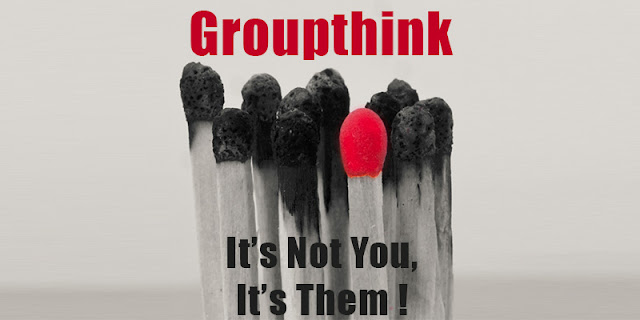 | |
|
In these times where work ethics, and personal relationships have grown into a mushy pile of political correctness, touchy-feely soul-crunching-heart-wrenching "Supercalifragilisticexpialidocious" emotional sensitivity, the biggest victim to such practices has been undoubtedly critical thinking.
A critical thinker in any entity or group is the thorn in the side of the applauding masses. In the quest for cohesiveness among groups in meetings, in decision making processes, or most business processes, people have simply chosen the easy way out by choosing to agree with the majority and shunning any disagreeing opinion as just not the right fit to the group, or the weird one, or the annoying one.
Those of you who are fans of classical movies can recognize this pattern of behavior in the iconic "12 Angry Men", where Henry Fonda's character raises the ire of his co-jurors for disagreeing with a fast"guilty" verdict which could cost a man his life. I highly recommend the film for its artistic value and for the takeaway it brings to this subject and will refrain from giving away any more details.
Located somewhere between Peer-Pressure and Dictatorship, GroupThink is defined as "a psychological phenomenon that occurs within a group of people in which the desire for harmony or conformity in the group results in an irrational or dysfunctional decision-making outcome."
Interestingly enough, this opens up the door for unscrupulous manipulators who know their way around this phenomenon to position key players who would subscribe to their agenda and alter the collective consciousness of the others through passive intimidation.
So what happens exactly when, in a business context, the primary goal of a group member becomes to achieve group satisfaction rather than to find a truly successful decision based on their own expertise and point of view?
 |
| Summary Illustration of GroupThink Dynamics |
In a real life example from my various consultancy projects, someone in a position of power was systematically trying to introduce into their company, in various open vacancies, an array of people with whom he has personal ties. He had already a core team of "groupies" around him that bullied everyone else into signing up into their way of doing things (regardless of how correct or NOT it was).
The meetings I attended with these individuals were always plagued by the same pattern of behavior. The inner circle persons to this influential individual would always advance an idea or an agenda or a solution and the rest would systematically fall in line. While there might have been some debate and [constructive] discussions at first, as more groupies were added to the team, the dissenting opinions were less outspoken and tended to agree faster with all the nonsense advanced by the others.
Naturally, the quality of work suffered and was obvious in several key opportunities being lost. To an external observer this was an inescapable truth but to the applauding masses, everything was just peachy.
As these dynamics tend to destabilize work and create problems it's a must for oversight bodies and individuals such as the HR department, or a highly placed manager to detect such anomalies and introduce remedies that work aim to mitigate and eventually eliminate this tendency.
Dissenting opinions are not troublesome, they are a healthy to critical thinking, managers should be always willing to listen to these opinions regardless of who is advancing them. Even someone who is being negative because they are unhappy can bring about important wake-up calls to the sleep-walking corporate environment.
An idea would be to assign always in each project a devil's advocate whose job would be to poke holes at the presented idea. Such divergent thinking when incorporated into the companies processes and procedures allows for early trouble-shooting and anticipatory measures rather than after-the-fact fire-fighting.
So, if you occasionally [often] feel you are a nuisance to colleagues who all seems to flow in unique harmony [think The Blue Danube - 1939 MGM Cartoon ] simply because you present a different point of view, keep your chin up, it's probably not you, it's them!


